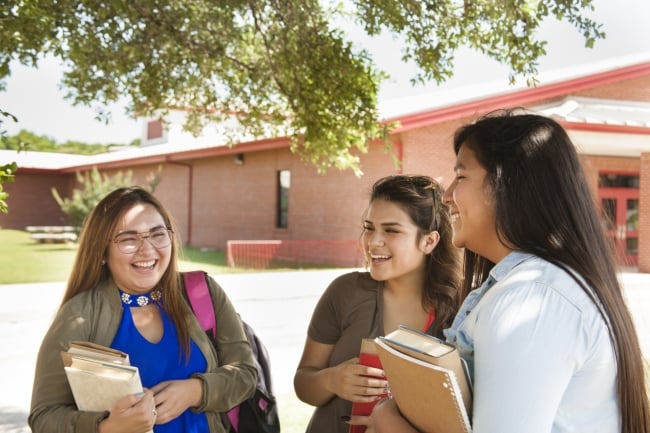You have /5 articles left.
Sign up for a free account or log in.

Salt Lake City Community College will provide free tuition to students from federally registered Native American tribes starting in January 2024.
fstop123/E+/Getty Images
Indigenous and Native American students make up fewer than 1 percent of all students enrolled in postsecondary education and fewer than half a percent of all undergraduate students, according to 2021–22 data from the National Center for Education Statistics.
To better support these underrepresented learners, Salt Lake Community College established a scholarship program that waives tuition for enrolled students who belong to a federally recognized Native American tribe.
“Increasing access to education is one step towards creating a sense of belonging, empowering sovereign rights, and building leaders, who can then give back and strengthen their Native communities,” Stephanie Charles, head of the SLCC Native American Coalition, said in a Nov. 14 press release.
The program will launch in January 2024 for all current students.
What’s the need: A 2022 national study of 2,789 current and former Native American college students found 72 percent of learners had run out of money at least once in the past six months, and 67 percent were responsible for helping their family with bills.
Basic needs insecurity was common, as well, with one in four current students experiencing food insecurity while in college and 16 percent of all participants experiencing homelessness while in postsecondary education.
A National Solution
SLCC joins a growing number of institutions that have waived tuition for Native American learners who are part of federally recognized tribes: the University of Arizona at Tucson, the University of California system and Metropolitan State University of Denver among them. State legislation in Minnesota, Oregon and New Mexico also removes financial barriers for Native American students attending public institutions.
Nonprofit organizations, including the Native Forward Scholars Fund, offer undergraduate and graduate scholarships as well as support services to boost degree attainment among the Indigenous population.
Half of all survey participants said they chose their institution based on overall cost of attendance, while 44 percent of current students said they did not fully understand the actual costs of attending college.
Community colleges, in particular, have seen declining enrollments of Native American students, with enrollment falling 26 percent among Native American men and 19 percent among Native American women since 2020.
How it works: SLCC’s program is available to students enrolled at the college or Salt Lake Technical College who can provide proof of residency in Utah and enrollment in one of the 574 federally recognized tribes in or adjacent to the state of Utah. Students can submit a Certificate Degree of Indian Blood to prove eligibility, as well.
At present, SLCC enrolls 233 students who identify as Native American.
Students do not have to be enrolled in a minimum number of credits and can participate in a degree, nondegree or certificate program, making it “one of the most inclusive in the state and country,” according to SLCC’s press release.
Campus leaders considered the needs of working students in establishing the program requirements. “This allows individuals who are mid-career and want to acquire more skills or a certification to take classes and it allows a student to take prerequisite classes that can transfer to a four-year school,” Josh Montavon, director of financial aid and scholarships at SLCC, said in the press release.
If your student success program has a unique feature or twist, we’d like to know about it. Click here to submit.








